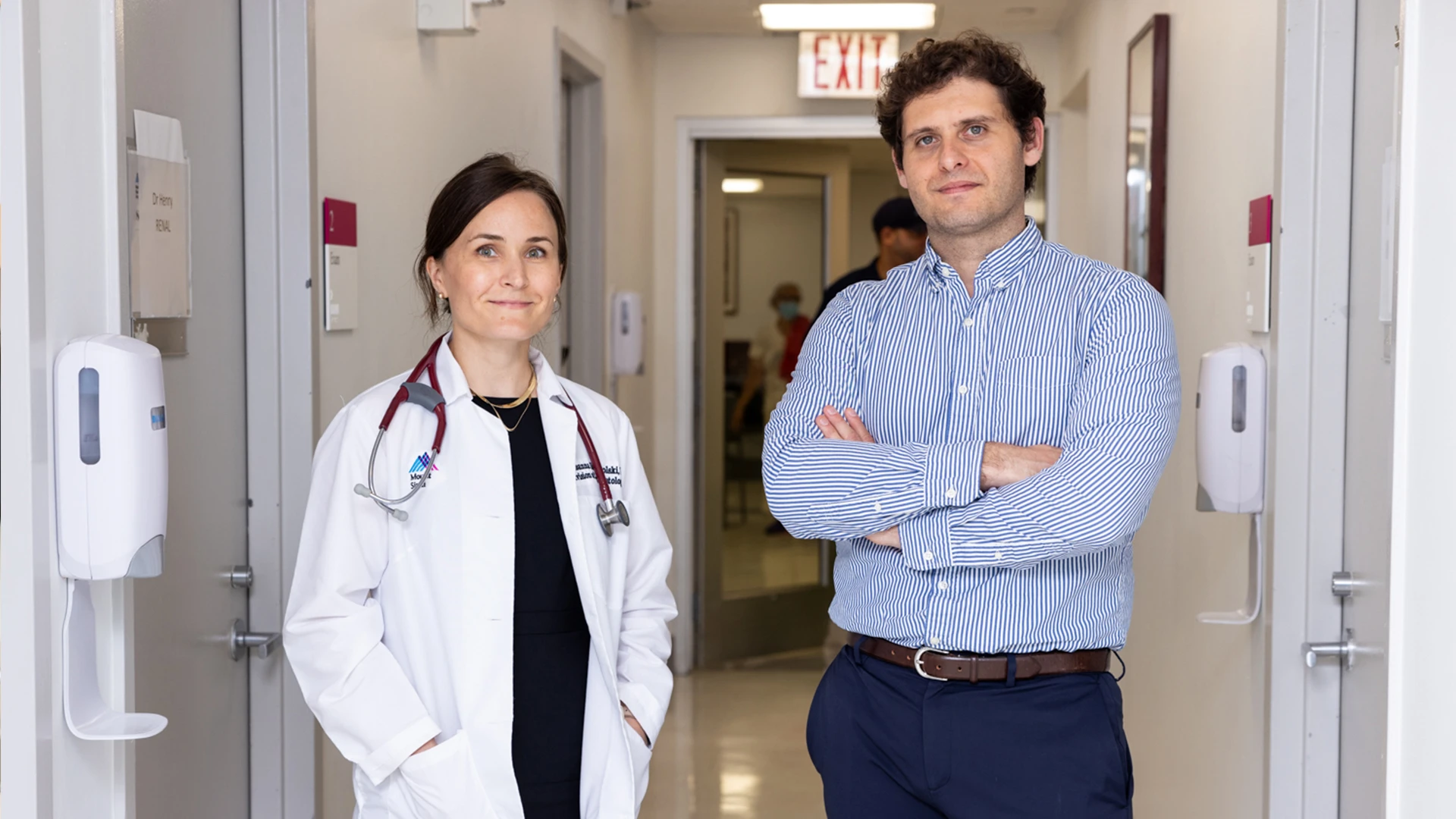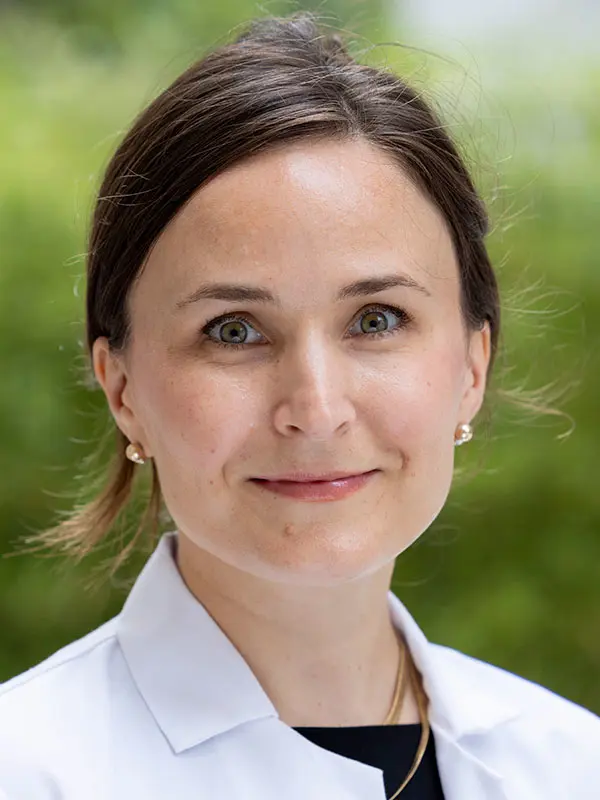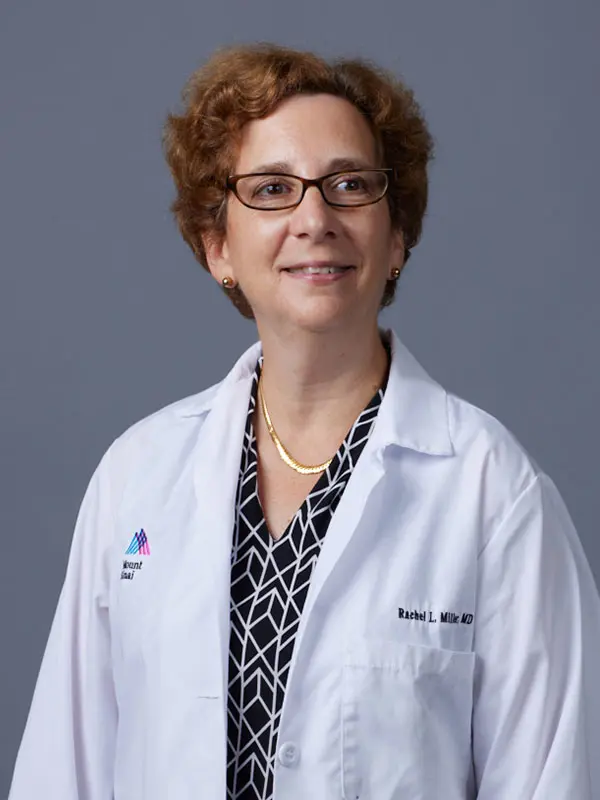Related Article
Lupus is an immense clinical challenge characterized by heterogeneous presentations that make diagnosis and treatment both difficult and delayed. Add to that neuropsychiatric, psychosocial, and cognitive threats to the health of patients with lupus, and the need for a center dedicated to the physical and behavioral care of these patients becomes clear.
Which is why the Lupus Program at Mount Sinai Morningside was recently created.
Lupus, or systemic lupus erythematosus, is an autoimmune disease in which the immune system misfires, attacking the skin, joints, kidneys, brain, lungs, heart, and other organs. It is fairly rare, afflicting 1 in 1,000 people. The vast majority of them are women, though the 10 percent or so of lupus patients who are male tend to have more severe disease. Lupus is often diagnosed in women between the ages of 20 and 40 and is an underappreciated leading cause of mortality in younger women, particularly Black women.
“There is often a very long lag time between the onset of symptoms and the time the patient presents to us in the rheumatology clinic,” explains Chrisanna Dobrowolski, MD, MS, Co-Director of the Lupus Program and Assistant Professor of Medicine (Rheumatology) at the Icahn School of Medicine at Mount Sinai. Dr. Dobrowolski is an attending physician at The Mount Sinai Hospital and Mount Sinai Morningside.
Symptoms of lupus might include fever, fatigue, rash, joint pain and swelling, swollen lymph nodes, mouth ulcers, and chest pain, all of which are also complaints of myriad other conditions—one reason for the typically long time it takes patients with lupus to receive correct diagnoses.
In addition to the above symptoms, Dr. Dobrowolski says, “Patients with lupus often have debilitating fatigue, brain fog, and diffuse myofascial pain, which are not necessarily responsive to lupus-specific treatments but regardless, have significant impacts on patients’ quality of life.”
Addressing Collateral Effects
The broad clinical presentation of lupus also means that the disease can affect nearly all aspects of a person’s life, explains Nicholas Kopple-Perry, DO, Associate Director of Psychiatry Education and Training at Mount Sinai Morningside and Director of the Consultation Liaison Psychiatry Service at Mount Sinai Morningside and Mount Sinai West. Dr. Kopple-Perry has specialized training working with individuals with comorbid medical illnesses that affect their psychiatric and psychological health—expertise that explains his role as Co-Director of the Lupus Program.

Chrisanna Dobrowolski, MD, MS, and Nicholas Kopple-Perry, DO, lead the Lupus Program at Mount Sinai Morningside.
The neuropsychiatric symptoms of the disease have been well documented, with studies finding that those with lupus suffer more lifetime mood or anxiety disorders, major depression, phobias, panic disorder, and obsessive-compulsive disorder than those in non-lupus comparative samples.
“People with lupus have twice the incidence of depression and higher levels of anxiety compared to the general population,” Dr. Kopple-Perry says. “Also, up to 80 percent of individuals living with lupus will have impaired working memory, impaired attention, and general cognitive slowing over the course of their lives, which has a huge impact on a person’s functioning. Financial issues and housing insecurity can become factors, as can registering and recalling treatment recommendations.”
The disease tends to first appear in early adulthood, typically during a woman’s reproductive years, and the advent of the disease can have an effect on one’s sense of self. Cutaneous manifestations also can disrupt one’s body image. “This disease really hits every domain of a person’s life and can be quite crippling,” Dr. Kopple-Perry says, “so in some ways treating lupus is more than just managing symptoms but also its collateral effects.”
Lupus is known to be more common among people who have high levels of stress and among those with a lower socioeconomic status. Dr. Dobrowolski notes that there is a significant lupus population in Morningside Heights and surrounding areas of Manhattan. “Having the clinic in the area where current patients live provides easier and better access and is really important for reducing barriers to treatment.”
The many presentations of lupus, and the wide disparity in disease acuity, means that most people do not have a good understanding of the challenge that patients face. “You have this illness that’s painful and debilitating and changes your body, affecting your emotions and your ability to think,” Dr. Kopple-Perry notes, “but the general population doesn’t always have a great understanding of the disease, which can make finding social support in one’s community a challenge.”
“These are patients with a high incidence of cognitive dysfunction, depression, and anxiety, for multiple reasons,” Dr. Dobrowolski says. “These issues present a huge barrier to proper lupus treatment, so addressing psychosocial aspects of the illness is really paramount to treating the patient.”
The unique spectrum of coverage of clinical and psychiatric manifestations of the disease makes the lupus clinic at Mount Sinai Morningside stand out. In addition, because the clinic is part of the Mount Sinai Health System, other specialists are readily available to augment patient care.
Although the lupus program is new, there are already discussions on how to grow it. One likely addition will be a patient support group, and both rheumatology and psychiatry fellows may soon help support the clinic as part of their educational experience.
Featured Faculty and Division Leadership

Chrisanna Dobrowolski, MD, MS
Assistant Professor of Medicine (Rheumatology)

Nicholas Kopple-Perry, DO
Assistant Professor of Psychiatry

Rachel L. Miller, MD
The Dr. David and Dorothy Merksamer Professor of Medicine (Allergy and Immunology); System Chief, Division of Clinical Immunology; Interim Chief, Division of Rheumatology
